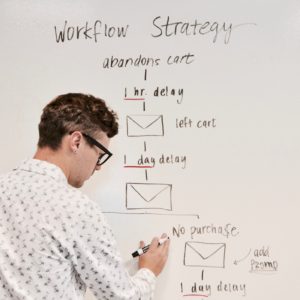What We Won’t Do
Sometimes it can be helpful to eliminate certain ideas to save time and avoid wasting time.
Here’s a list of what In3 generally does not offer to sharpen your understanding of what we do. These are not hard-and-fast rules, but more like guidelines; exceptions can and do often occur, so we remain open to learning about your unique situation, in order to seek solutions to some of the notorious roadblocks. Please read the entire list and ask questions if you are unclear.
Industry Focus is to “do no harm” and have a positive impact:
- We will not work in certain industries, such as extractive ones (conflict diamonds, most mining, petroleum-based Oil & Gas ventures, … especially if located in protected habitat), or involving chemically-intensive agriculture, tobacco products, weapons, unsafe, unethical or illegal activities.
- We do not get involved with any activities that will likely cause irreparable harm to the environment, or that treat workers with disrespect (note: many or most sources of development finance will also take issue with such practices, so if this is part of how your business will operate, please disclose this as a known issue so we can explore possible solutions, or reconsider the entire approach). Examples of what’s not allowed:
- Production or activities involving harmful or exploitative forms of forced labor, or harmful child labor, or practices that are discriminatory or prevent employees from freely exercising their right to association and collective bargaining.
- Production or trade in any product or activity deemed illegal under host country laws or regulations or ratified international conventions and agreements.
- Production or trade in weapons and munitions.
- Production or trade in tobacco, gambling, casinos, and other similar activities.
- Trade in endangered species of wildlife or wildlife products regulated under CITES, or products derived thereof.
- Restricted materials: Production or trade in radioactive materials, in or use of unbonded asbestos fibers, in wood or other forestry products from forests that lack sustainable management, in nanomaterials not known to be safe.
- Plantation projects that would require the removal of existing non‐degraded natural forest.
- Production or trade in products containing PCBs.
- Production, trade, storage, or transport of significant volumes of hazardous chemicals,
or commercial scale usage of hazardous chemicals. - Transboundary trade in waste or waste products, except for non‐hazardous waste destined for conversion or recycling.
- Production or trade in pharmaceuticals, pesticides/herbicides, or persistent organic pollutants (POPs) subject to international phase‐out or bans. For example, Bayer/Monsanto RoundUp™ (glyphosate), or other chemicals with known health concerns (controversial due to lawsuits found in favor of the plaintiff, or where the “jury is out” as to proof of their safety and efficacy), are off our table.
Financial Structures:
We offer in-house capital through our flagship Completion Assurance Program™ (CAP funding), as well as other funding above US$50 million for mid-market projects or portfolios. For companies seeking either project funding below $25 million or venture capital (differences between venture capital and project capital?), we generally require a Management Services Agreement to deliver strategic advisory and other services within a tight scope of work. More at New Client Resources if you are raising money.
What we won’t do:
- We can provide 100% financing, but just not 100% debt — not without the developer or a stakeholder taking on a meaningful share of the risks. No reputable lender or equity investor will take on all of the risks without expecting risk-adjusted returns or control in some form. Some less reputable lenders tend to be predatory and will attempt to outmaneuver the owners to take control of assets (and they will do so if you let them, even if unwittingly). To avoid this unfortunate, deceptive (and ethically questionable) practice, we created In3’s CAP funding, where we make all terms and conditions fully transparent and help developers qualify, with ZERO upfront fees. All funding for qualified projects comes from a private, US-based family office. For a deeper dive, review the CAP funding description, program synopsis, or Frequently Asked Questions.
- Paying off existing debt or equity holders in a lump sum. Most lenders prefer to pay out seed investors or short-term (bridge or construction loans) over time, though the program mentioned above may be able to solve this. Some projects can also be sold outright — delivered “turnkey” under a Build-Operate-Transfer or BOT model — where the developer collects a fee instead of retaining a carried interest. Some assets can be acquired outright if the payout of funds are first accumulated in an escrow account. We also have an M&A practice, making acquisitions possible, so please mention this up front, when we are just starting out (New Client Resource Center).
- Doing business in countries not qualified for our lending or investment programs, which is a short list that boils down to countries with US sanctions imposed against them (see list of qualified countries). That said, if the Special Purpose Vehicle (SPV) can be located somewhere else, it may still be feasible to fund such a project.
- First-time entrepreneurs seeking to gain project development experience through commercial financing will have a harder time qualifying – there’s usually a required minimum 3 years business and sector experience, plus a sharp learning curve just to navigate the requirements. We may ask for a modest retainer or due diligence fee if you cannot demonstrate preparedness, or wish to learn on-the-job how to build a standards-based project financing proposal. Alternatively, you may hire/involve someone else to help you prepare the project’s financial model, make commercial arrangements, and related disclosures that meet minimum expectations for funding. Consider hiring an In3 Affiliate, as they are trained in our systems.
- Trade or Import/Export Transactions (with rare exception)
- Anything to do with Bitcoin, Blockchain or alternative currencies, or purely financial services companies, with rare exception. That said, we can invest in almost any established local currency.
Questions? Not sure if your project fits, exactly? Ask!




